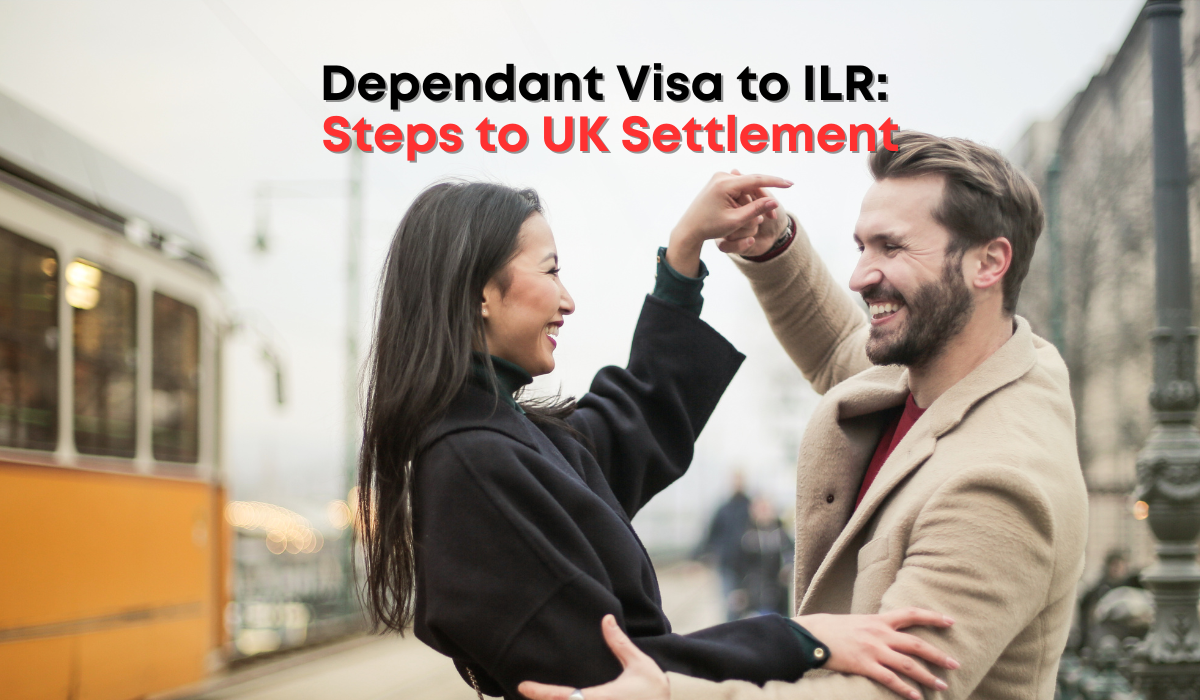Achieving Indefinite Leave to Remain (ILR) in the UK is a significant milestone for many migrants and their families. It offers the stability of permanent settlement, the ability to live and work without restrictions, and serves as a pathway to British citizenship. However, the process can be complex, particularly for dependants, as there is no specific ‘ILR Dependant Visa’ immigration route. In this article, we explore the nuances of dependant visas, their role in the ILR process, and how families can navigate this journey successfully.
The Myth of the ILR Dependant Visa
A common misconception among applicants is the existence of a standalone ‘ILR Dependant Visa.’ In reality, such a route does not exist. Instead, several dependant visa types may count toward ILR eligibility after a qualifying period of residence. These include:
- Points-based System (PBS) Dependant Visas: For family members of individuals on work visas, such as the Skilled Worker visa.
- Family Visas: For spouses, partners, children, and other close family members of settled individuals or British citizens.
Understanding these categories is crucial for dependants seeking permanent settlement in the UK.
ILR Requirements for Dependant Children
Dependant children can apply for ILR if specific conditions are met. These include:
- Parental Status: The child must have a parent who is either a British citizen or holds ILR.
- Living Arrangements: The child must intend to reside with their parent(s) or a relative in the UK.
- Independence: The child must not be married, in a civil partnership, or living an independant life.
- Financial Support: The UK-based parent(s) must provide adequate financial support and accommodation without relying on public funds.
Additional criteria may apply based on the child’s circumstances. For example, the rules differ for children born outside the UK, those applying as dependants of settled parents, and those accompanying visa holders.
ILR Requirements for Dependant Partners
Dependant partners, including spouses and unmarried partners, must satisfy specific criteria to obtain ILR. These depend on the visa type under which they entered the UK.
- Family Visa Route (Partner Visa)
Partners on the family visa route must:
- Hold a valid visa as a partner or spouse.
- Be in a genuine relationship with their UK-settled partner, who is either a British citizen or ILR holder.
- Meet the continuous residence requirement, typically 2, 5, or 10 years depending on their visa route.
- Demonstrate financial stability, often through a combined income threshold for the 5-year route.
- PBS Dependant Partner Visa
PBS dependants applying for ILR must:
- Hold a valid PBS-dependant visa.
- Be the partner of an individual settled in the UK or applying for ILR.
- Ensure their partner held a qualifying work visa, such as:
- Skilled Worker (Tier 2 General)
- Scale-up Worker
- Tier 1 (Exceptional Talent/Entrepreneur/Investor)
- T2 Minister of Religion
- UK Ancestry
- Representative of an Overseas Business
In most cases, the dependant partner must meet a 5-year residence requirement, although some exceptions exist, such as for dependants on Ancestry visas or Representative of an Overseas Business visas.
Extending a Dependant Visa: A Step Towards ILR
For dependants who have not yet met the qualifying residence period for ILR, extending their current visa is often necessary. The rules for extensions generally mirror those of the initial application. For example:
- PBS Dependant Visa Extensions: These typically align with the primary visa holder’s status. For instance, if the main applicant’s Skilled Worker visa is extended, the dependant’s visa can also be extended.
- Family Visa Extensions: Partners on this route usually extend their visas after 33 months for an additional 30 months.
Applicants must continue to meet all eligibility criteria, including relationship authenticity, financial thresholds, and lawful residence in the UK.
Key Challenges for Dependants Seeking ILR
While the process appears straightforward on paper, dependants often face challenges, including:
- Document Gaps: Missing evidence of relationship, residence, or financial support can lead to delays or refusals.
- Continuous Residence Rules: Exceeding permissible absences (typically 180 days in any 12-month period) can disrupt eligibility.
- Misunderstanding Routes: Confusion about visa categories and requirements can result in wasted time and resources.
Seeking professional guidance is critical to overcoming these hurdles and ensuring a smooth application process.
Your Path to Settlement: What to Do Next
If you’re a dependant looking to secure ILR, consider the following steps:
- Understand Your Visa Route: Confirm whether your visa type counts toward ILR and the specific requirements you need to meet.
- Prepare Documentation: Gather all necessary evidence, including proof of relationship, financial stability, and residence.
- Verify Continuous Residence: Ensure you comply with the residence requirements for your visa type.
- Seek Professional Advice: Immigration laws can be complex and subject to change. A qualified solicitor can provide tailored advice and support for your case.
Need Help? Speak to an Immigration Expert
Navigating the ILR process as a dependant requires careful planning and attention to detail. For expert assistance, contact GigaLegal Solicitors at 02074067654 for a free consultation. Alternatively, complete our online enquiry form to discuss your case with an experienced immigration lawyer.
Whether you’re applying for ILR as a partner or child, extending your visa, or unsure about your eligibility, our team is here to guide you every step of the way.
Get in touch: For a comprehensive understanding of your options or queries on UK immigration matters, contact GigaLegal Solicitors at 02074067654 or click here to book a no-obligation consultation with an immigration expert.


